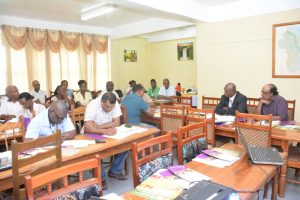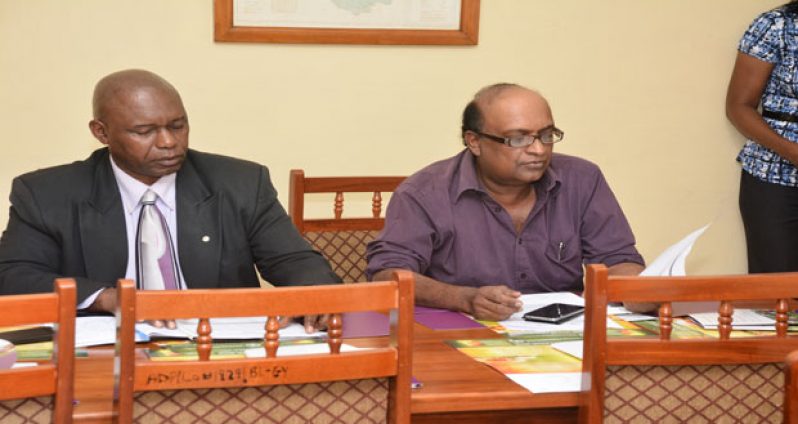CASSAVA and its by-products can help reduce the high Regional food import bill and also has the potential for creating big business opportunities for Guyanese producers, local representative of the Food and Agricultural Organisation (FAO), Mr Reuben Robertson has said.The official made the assertion during the formal launch of an FAO/Government of Guyana (GOG) project aimed at expanding cassava production, processing and utilization within the Region.
The launch in Guyana took place in the boardroom of the National Research and Extension Institute (NAREI) at Mon Repos last Wednesday and was attended by senior officials of the FAO, NAREI, cassava farmers and food processors, including bakeries.

The intention of the project for integrated development of the cassava industry in the Caribbean is to develop cassava as an ingredient replacement for such purposes as a proportion of wheaten flour in bread, in corn in livestock feed, and for malt in the production of beer to reduce the volume of high priced food imports. .
SCIENTIFIC EVIDENCE
The project is based on scientific evidence that the cassava has the capacity to replace at least 20% of wheat flour imports , up to 40% of the corn in poultry ration and other animal feed and by itself might address 25% of the food import bill.
Guyana is among seven other CARIFORUM countries participating in the FAO project.
The others are Jamaica, Barbados, St Lucia, St Vincent, Grenada and Belize.
The objective of the launch was to raise local stakeholders’ awareness of the programme and to get their input into the development of a national action plan.
The programme included presentations by Dr Oudho Homenauth, Director of NAREI, Mr. Roberston and the Regional Project Coordinator, Ms Vermaran Extavour.
Robertson told local producers that Guyana has the capacity to produce cassava as the raw materials for its many valued- added uses in the rest of the Region and urged them to start thinking big.
“We want you to come out of the cocoon where you operate your little cassava production here and see the bigger picture of where we want to go within the rest of the Region.
Meanwhile, Dr Homenauth told participants that NAREI currently has ongoing a number of research activities focussing on production of disease-free planting material, best practices for crop husbandry, management and reduction of harvest and post-harvest losses.
He said that these research activities and consequent technology transfer to Guyanese farmers would place them in a very good position to cash in on the growing demand for cassava within the Region.
And Ms. Extavour said that cassava has a potential market for food, fresh chilled frozen, ground flour, starch, animal feed , chips, beer and biofuels.
RED STRIPE BEER
She mentioned developments in Jamaica last year where the Red Stripe beer company created thousands of jobs as part of a project to replace imported inputs with locally grown cassava in the production of beer.
The beer maker signed a lease agreement with the Agro Investment Corporation of Jamaica for 36 acres of land to be used as a pilot farm for cassava cultivation.
Red Stripe managing director Cedric Blair said that he was absolutely confident that the company will be in a position to replace approximately 20 per cent of its imported brewing raw materials by 2016.
Extavour said that the cassava project will develop, test and promote cassava products and recipes and develop and implement a campaign promoting/highlighting the use of cassava and its nutritional and health benefits.
It will seek to identify, standardize, upgrade and promote the use of best-performing processing equipment (good prototypes of graters, pressers, stoves etc.) and create private sector stakeholder partnerships to develop high quality cassava flour (HQCF)
The FAO will also network with the CARICOM Secretariat, the Inter-American Institute for Co-operation on Agriculture (IICA), the Caribbean Agricultural Research and Development Institute (CARDI), the Caribbean Farmers Network( CaFAN) the Caribbean Business Association (CABA) the Commission of the Organisation of Eastern Caribbean States (OECS) NAREI and the Ministry of Agriculture to ensure synergy within the overall effort.
By Clifford Stanley



.jpg)









